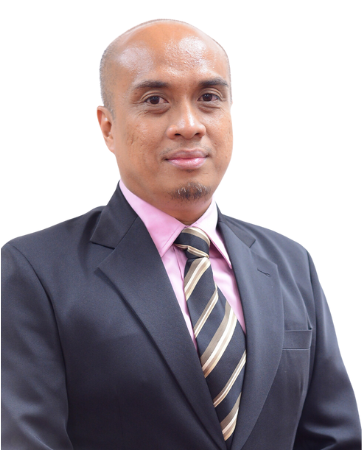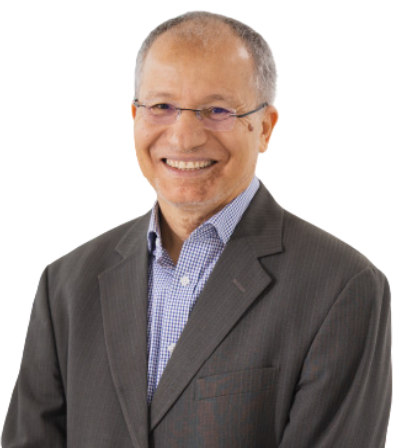Keynote Speakers

Prof. Ir. Dr. Nor Ashidi
Universiti Sains Malaysia
Prof. Ir. Dr. Nor Ashidi received the B. Eng. Degree in Electrical and Electronic Engineering with First Class Honors in 1999 and the PhD degree in Electronic Engineering (majoring in Image Processing and Artificial Neural Network) in 2003 from Universiti Sains Malaysia (USM). He is currently a Professor at the School of Electrical and Electronic Engineering, USM. His research interests include intelligent systems, image processing, machine learning, deep learning and medical image processing. As of July 2024, he has published more than 195, 236 and 317 articles indexed in WoS-ISI (H-index 35), SCOPUS (H-index 42) and Google Scholar (H-Index 50) respectively. Due to his outstanding achievement in research, he gained recognition, both national and internationally. He was recognized as top 2% researcher in category – Citation Impact in Single Calendar Years 2019, 2020 and 2021 by Stanford University USA and Top Research Scientist Malaysia (TRSM) by Akademi Sains Malaysia (ASM) in 2020.
Potential of You Only Look Once (YOLO) Networks for Printed Circuit Board (PCB) Component and Defect Detection
Printed circuit boards (PCBs) are becoming increasingly complicated, diminutive and delicate due to the rapid development of integrated circuit technology. Effective detection for PCB defects and components is critically important and challenging for the PCB industry. However, current methods for PCB inspection are hardly competent for both rapid and accurate detection simultaneously. You Only Look Once (YOLO) networks, known for their accurate and real-time performance in object detection, have shown high potential for PCB inspection. This speech will focus on the potential of YOLO networks in detecting dense components, soldering defects, tiny cosmetic defects, solder mask peel off (SMPO) defects and label printing defects. Based on results from studies conducted by Imaging and Intelligent System Research Team (ISRT) USM, new modified YOLO networks not only exhibit excellent results for PCB components, but also have impressive generalization ability on PCB defects detection.

Prof. Dr. Mohsen Guizani
Mohamed Bin Zayed University of Artificial Intelligence
Prof. Dr. Mohsen Guizani (Fellow, IEEE) received the BS (with distinction), MS and PhD degrees in Electrical and Computer engineering from Syracuse University, Syracuse, NY, USA in 1985, 1987 and 1990, respectively. He is currently a Professor of Machine Learning at the Mohamed Bin Zayed University of Artificial Intelligence (MBZUAI), Abu Dhabi, UAE. Previously, he worked in different institutions in the USA. His research interests include applied machine learning and artificial intelligence, smart city, Internet of Things (IoT), intelligent autonomous systems, and cybersecurity. He became an IEEE Fellow in 2009 and was listed as a Clarivate Analytics Highly Cited Researcher in Computer Science in 2019, 2020, 2021 and 2022. Dr. Guizani has won several research awards including the “2015 IEEE Communications Society Best Survey Paper Award”, the Best ComSoc Journal Paper Award in 2021 as well 5 Best Paper Awards from ICC and Globecom Conferences. He is the author of 11 books, more than 1000 publications and several US patents. He is also the recipient of the 2017 IEEE Communications Society Wireless Technical Committee (WTC) Recognition Award, the 2018 AdHoc Technical Committee Recognition Award, and the 2019 IEEE Communications and Information Security Technical Recognition (CISTC) Award. He served as the Editor-in-Chief of IEEE Network and is currently serving on the Editorial Boards of many IEEE Transactions and Magazines. He was the Chair of the IEEE Communications Society Wireless Technical Committee and the Chair of the TAOS Technical Committee. He served as the IEEE Computer Society Distinguished Speaker and is currently the IEEE ComSoc Distinguished Lecturer.
Machine Learning Wireless Network Applications in Smart Cities
With the advancement of Internet of Things (IoT) that is transforming our society by connecting the world, future wireless services will focus on improving the quality of life by enabling various applications, such as extended reality, brain-computer interaction, and healthcare. These applications will have diverse performance requirements (e.g., user-defined quality of experience metrics, latency, and reliability) which will be challenging to be fulfilled by existing wireless systems. To meet the diverse requirements of the emerging applications, the concept of smart IoT has been recently proposed and used. An IoT using computing technologies (e.g., edge computing), security related technologies (e.g., blockchain) and machine learning, to enable smart city applications. On the other hand, federated learning (FL) has provided a private platform in many of these applications to protect the data and reduce latency. These smart services/applications rely on efficient computation and communication resources. Furthermore, being able to provide adequate services using these complex systems presents enormous challenges.
In this talk, we present an overview of the use of AI and IoT in smart cities. Then, we showcase our research activities that will contribute to these efforts and advocate possible solutions using these models. We provide ways on how to manage the available resources intelligently and efficiently to offer better living conditions for our citizens and provide better services. Finally, we discuss some of our research results and future directions to support a variety of applications.
